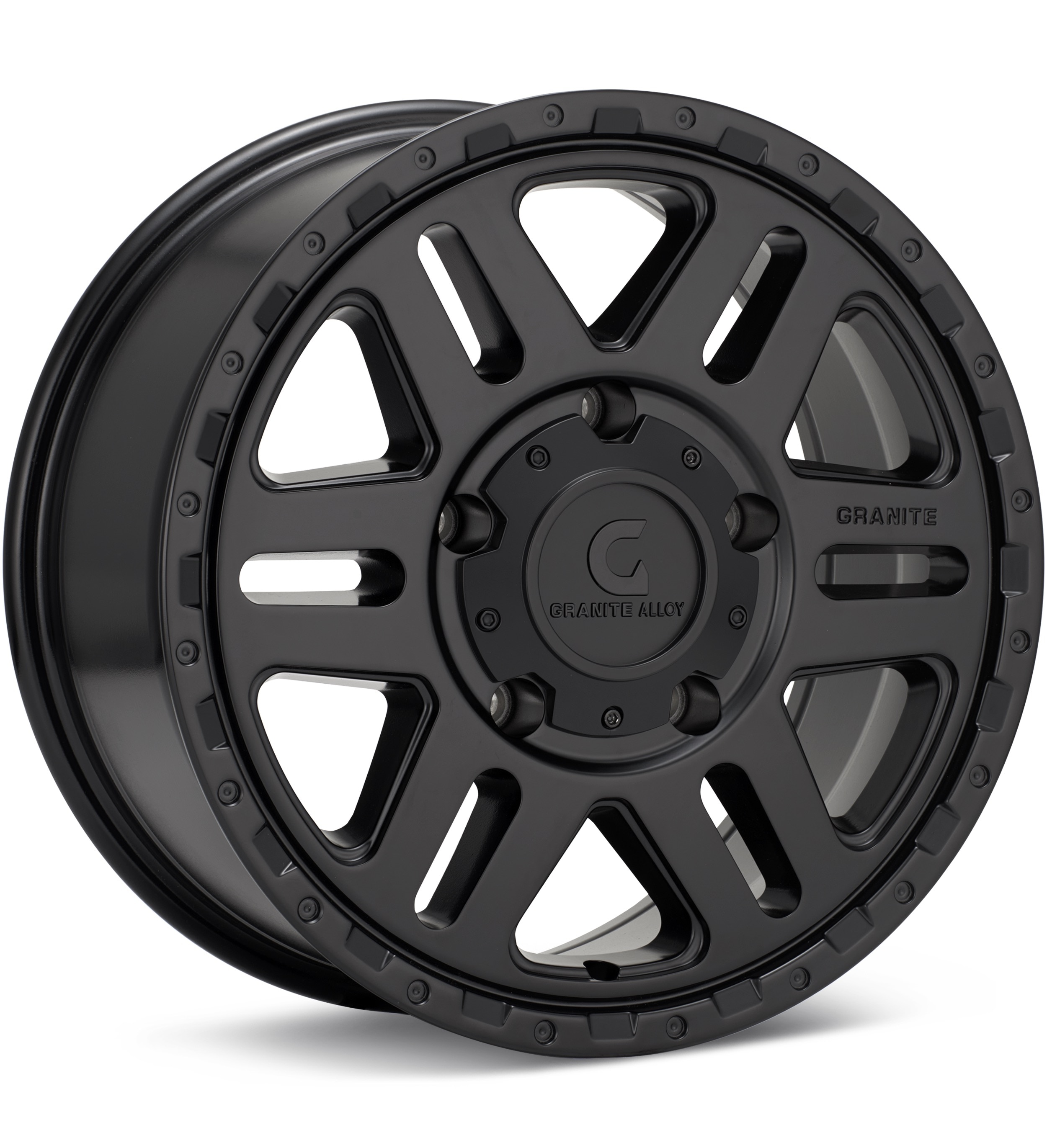From Quarry to Roadway: The Trip of Granite Alloy Wheels
From Quarry to Roadway: The Trip of Granite Alloy Wheels
Blog Article
Introduction: The Importance of Choosing the Right Granite Alloy Rims for Your Vehicle
When it comes to boosting the appearance and performance of your vehicle, selecting the ideal set of Granite Alloy rims is important. Not only do these rims add a touch of style and elegance to your car, but they additionally enhance handling and general driving experience. However, with numerous alternatives offered on the market, finding the right rims can be frustrating. That's why we have created this utmost guide to help you make an educated decision and choose the best Granite Alloy rims for your vehicle.

What are Granite Alloy Wheels?
Before diving right into the information of selecting the perfect Granite Alloy rims, allow's very first comprehend what exactly these wheels are. Granite Alloy wheels are made from a mix of high-quality aluminum alloy and various other steels, making them light-weight yet long lasting. These rims are understood for their outstanding strength-to-weight ratio, which permits far better acceleration, braking, and handling. Additionally, Granite Alloy wheels are highly resistant to rust and deal premium warm dissipation residential or commercial properties.
Aspects to Think About When Picking Granite Alloy Rims
1. Size Matters: Locating the Right Diameter and Size
The dimension of your Granite Alloy rims plays a crucial role in both aesthetic appeals and performance. It is necessary to pick rims that work with your vehicle's requirements. The size of the rim must match the tire size suggested by the producer. Additionally, think about the width of the rim as it influences tire fitment and total performance.
2. Bolt Pattern: Making Certain Correct Fitment
The screw pattern refers to the number of screws on the rim and their spacing. It is important to choose Granite Alloy rims with a bolt pattern that matches your vehicle's hub pattern. Installing rims with an wrong bolt pattern can lead to inappropriate fitment, triggering safety hazards and influencing handling.
3. Offset and Backspacing: Attaining the Right Position
The offset establishes just how much the rim sits from the vehicle's center. It is vital to select a Granite Alloy rim with the proper countered to attain the preferred position. A favorable offset means the mounting surface area is more detailed to the outside, while a adverse balanced out Granite Alloy wheels review means it is better to the inside. Understanding your vehicle's specific demands will assist you choose rims that offer ideal clearance and avoid scrubing issues.
4. Tons Rating: Ensuring Security and Toughness
Each vehicle has a recommended load rating, which indicates the optimum weight ability that the rims can sustain. It is vital to select Granite Alloy rims with a lots ranking that matches or surpasses your vehicle's demands. Opting for rims with a lower load score can endanger security and durability.
5. Style and Finish: Enhancing Your Vehicle's Look
Granite Alloy rims can be found in different designs and coatings, enabling you to customize your vehicle's look. Consider your vehicle's total aesthetic and select a rim design that enhances it. Whether you prefer a sleek and contemporary appearance or a extra sturdy and aggressive design, there are choices offered to match every preference.
Frequently Asked Questions (FAQs)
Q1: Are Granite Alloy rims suitable for all types of vehicles?
A1: Yes, Granite Alloy rims are offered in different dimensions and arrangements ideal for different types of vehicles, including cars, trucks, SUVs, and crossovers.
Q2: Can I install Granite Alloy rims on my own?
A2: While it is possible to set up Granite Alloy rims on your own, it is advised to look for expert assistance to guarantee correct fitment and avoid any kind of potential problems.
Q3: Just How do Granite Alloy rims enhance performance?
A3: Granite Alloy rims are lighter than standard steel wheels, reducing unsprung weight. This enhancement in weight circulation brings about far better acceleration, braking, and handling, inevitably enhancing total performance.
Q4: Can I utilize my existing tires with Granite Alloy rims?
A4: For the most part, you can utilize your existing tires with Granite Alloy rims as long as they are compatible in terms of size and fitment. It is suggested to consult a expert to make sure a correct suit.
Q5: Are Granite Alloy rims much more costly than various other types of wheels?
A5: While Granite Alloy rims may be slightly much more expensive than steel wheels, they use superior longevity, performance, and visual appeal, making them a worthwhile financial investment.
Q6: Exactly how do I keep Granite Alloy rims?
A6: To maintain your Granite Alloy rims in leading condition, on a regular basis tidy them using a mild soap and water remedy. Avoid utilizing severe chemicals or rough cleansers that might harm the coating. In addition, apply a protective finish or wax to stop corrosion.
Conclusion
Picking the perfect Granite Alloy rims for your vehicle is a choice that must not be taken lightly. By considering elements such as size, bolt pattern, offset, tons ranking, and design, you can make certain optimum fitment and performance. Whether you wish to improve the look of your car or improve its managing capabilities, Granite Alloy rims are an superb choice. Bear in mind to speak with specialists and comply with supplier referrals during the option and setup procedure to attain the best results. Purchase quality rims today and delight in the advantages for many years to come! Report this page